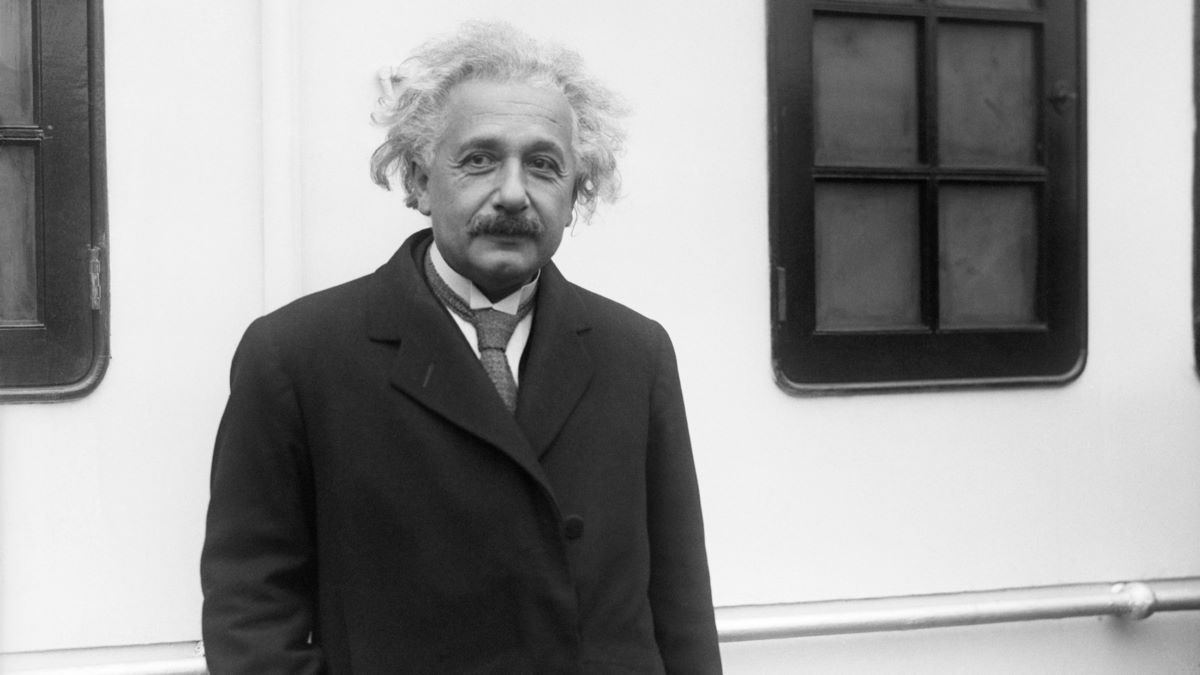
Albert Einstein, a name synonymous with genius, revolutionized our understanding of the universe. But how much do you really know about this iconic physicist? Born in 1879 in Germany, Einstein's curiosity and brilliance were evident from a young age. He didn't speak fluently until he was nine, leading his parents to worry about his development. Despite these early concerns, he went on to develop the theory of relativity, fundamentally changing physics. Did you know he was offered the presidency of Israel? Or that he played the violin to relax? From his love for sailing to his quirky fashion choices, Einstein's life was full of intriguing details. Ready to dive into 35 fascinating facts about Albert Einstein? Let's get started!
Key Takeaways:
- Albert Einstein's early interest in science and mathematics shaped his groundbreaking career. Despite struggles, he excelled in physics and revolutionized the field with his theories of relativity and quantum mechanics.
- Einstein's personal life was as intriguing as his scientific achievements. From his marriages to his love for sailing and pacifism, he remains an iconic figure known for his genius and quirky personality.
Early Life and Education
Albert Einstein's early years were filled with curiosity and a thirst for knowledge. Here are some fascinating facts about his childhood and education.
- Born on March 14, 1879, in Ulm, Germany, Einstein showed an early interest in science and mathematics.
- At age five, he received a compass from his father, which sparked his lifelong fascination with the invisible forces of nature.
- Contrary to popular belief, Einstein was not a poor student. He excelled in mathematics and physics from a young age.
- He attended the Luitpold Gymnasium in Munich but struggled with the rigid teaching methods.
- In 1895, he failed the entrance exam to the Swiss Federal Polytechnic in Zurich but later passed after additional preparation.
- Einstein renounced his German citizenship in 1896 to avoid military service and became a Swiss citizen in 1901.
Career and Scientific Contributions
Einstein's career was marked by groundbreaking discoveries that changed the course of science. Let's delve into some key moments and contributions.
- In 1905, often referred to as his "Annus Mirabilis" or "Miracle Year," Einstein published four pivotal papers that revolutionized physics.
- One of these papers introduced the theory of special relativity, which includes the famous equation E=mc².
- He also explained the photoelectric effect, which earned him the Nobel Prize in Physics in 1921.
- Einstein's work on Brownian motion provided empirical evidence for the existence of atoms.
- In 1915, he presented the general theory of relativity, which described gravity as the curvature of spacetime.
- His prediction of the bending of light by gravity was confirmed during a solar eclipse in 1919, making him an international celebrity.
Personal Life and Relationships
Einstein's personal life was as complex as his scientific theories. Here are some intriguing facts about his relationships and family.
- He married Mileva Marić, a fellow physicist, in 1903. They had two sons, Hans Albert and Eduard.
- The couple also had a daughter, Lieserl, whose fate remains a mystery.
- Einstein and Marić divorced in 1919, and he married his cousin Elsa Löwenthal later that year.
- Despite his fame, Einstein preferred a simple lifestyle and often wore casual, unassuming clothing.
- He was known for his sense of humor and often played the violin to relax.
- Einstein had numerous friendships with other prominent scientists, including Niels Bohr and Max Planck.
Later Years and Legacy
Einstein's later years were marked by his advocacy for peace and his continued contributions to science. Here are some notable facts from this period.
- In 1933, Einstein emigrated to the United States to escape the rise of the Nazi regime in Germany.
- He accepted a position at the Institute for Advanced Study in Princeton, New Jersey, where he worked until his death.
- Einstein was a vocal advocate for civil rights and was a member of the NAACP.
- He was offered the presidency of Israel in 1952 but declined, citing his lack of experience in politics.
- Einstein's brain was removed for study after his death in 1955, revealing an unusually high number of glial cells.
- His name has become synonymous with genius, and his theories continue to influence modern physics.
Fun and Lesser-Known Facts
Beyond his scientific achievements, Einstein's life was filled with quirky and lesser-known facts. Here are some that might surprise you.
- Einstein had a deep love for sailing, although he was notoriously bad at it.
- He was a passionate pacifist and spoke out against war throughout his life.
- Despite his disheveled appearance, Einstein was meticulous about his work and often rewrote papers multiple times.
- He had a pet parrot named Bibo, who he claimed was depressed.
- Einstein's favorite scientist was Michael Faraday, whose work on electromagnetism inspired him.
- He was known to give away his handwritten notes and letters, many of which are now valuable historical documents.
- Einstein's iconic tongue-out photo was taken on his 72nd birthday and remains one of the most famous images of him.
- He was a member of the American Philosophical Society and received numerous honorary degrees from universities worldwide.
- Einstein's theories have been confirmed by numerous experiments, including the detection of gravitational waves in 2015.
- He was an avid supporter of Zionism and helped establish the Hebrew University of Jerusalem.
- Despite his immense contributions to science, Einstein remained humble and often attributed his success to curiosity and perseverance.
Einstein's Legacy Lives On
Albert Einstein's contributions to science and humanity remain unmatched. His theory of relativity revolutionized physics, changing how we understand space and time. Beyond his scientific achievements, Einstein's humanitarian efforts and advocacy for peace showcased his deep concern for global issues. His quirky personality and unique habits made him a fascinating figure, both in and out of the lab.
Einstein's curiosity and relentless pursuit of knowledge continue to inspire generations of scientists, students, and thinkers. His work laid the groundwork for modern physics, influencing countless discoveries and technological advancements. Even today, his theories are tested and validated, proving their enduring relevance.
Remembering Einstein isn't just about his scientific genius. It's about celebrating a man who dared to think differently, challenge norms, and dream big. His legacy is a testament to the power of imagination and perseverance.
Frequently Asked Questions
Was this page helpful?
Our commitment to delivering trustworthy and engaging content is at the heart of what we do. Each fact on our site is contributed by real users like you, bringing a wealth of diverse insights and information. To ensure the highest standards of accuracy and reliability, our dedicated editors meticulously review each submission. This process guarantees that the facts we share are not only fascinating but also credible. Trust in our commitment to quality and authenticity as you explore and learn with us.


